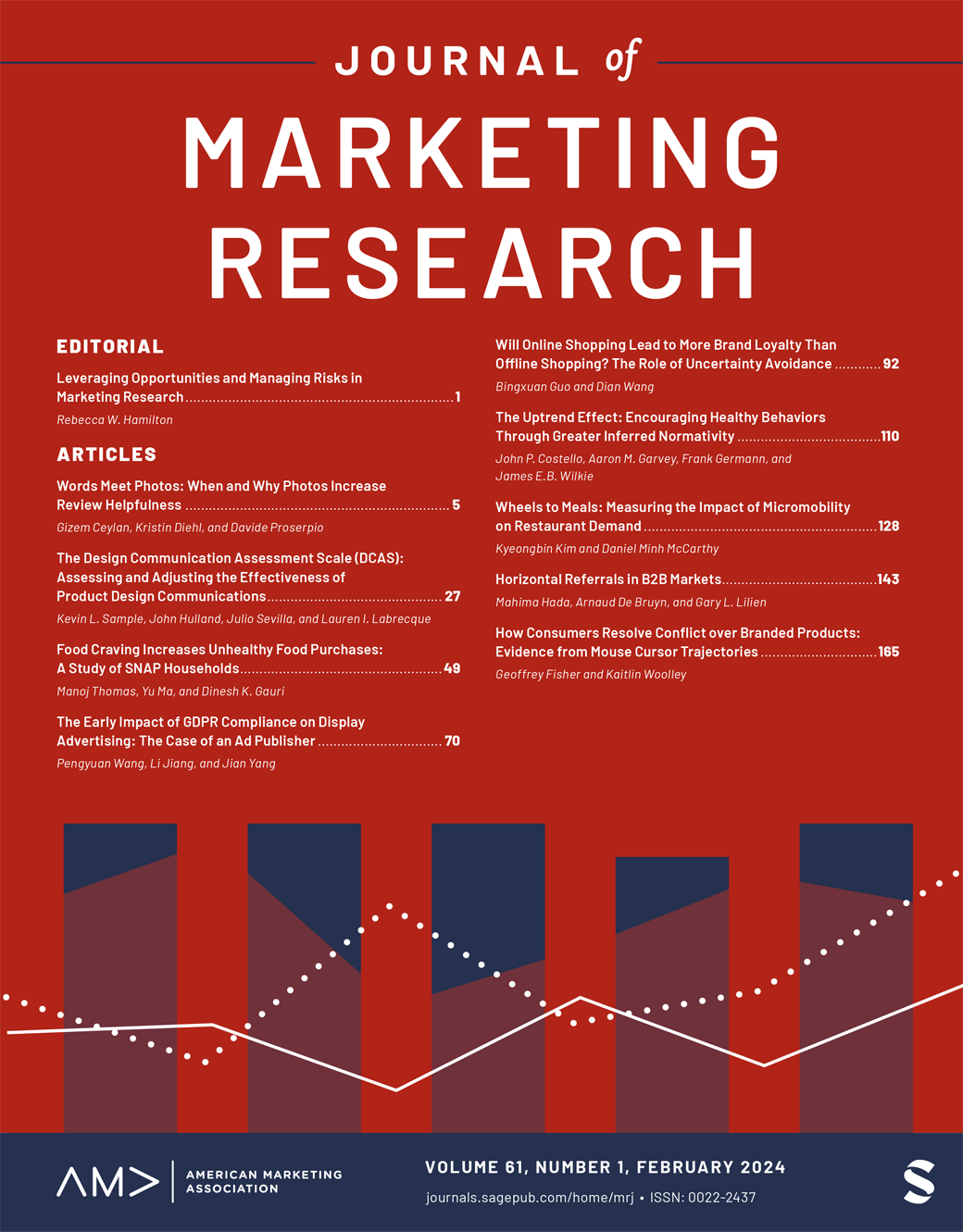EXPRESS: Resources Available for Me versus Us: Implications for Mitigating Consumer Food Waste
IF 5.1
1区 管理学
Q1 BUSINESS
引用次数: 0
Abstract
Although food waste is an urgent issue with widespread economic, societal, and environmental impacts, it remains understudied in the marketing discipline. This is surprising since most food waste occurs at the retail and consumption stages of the food life cycle. This research fills this gap by examining how resource mindset and self-construal jointly shape consumer food waste. Specifically, inducing a scarcity mindset signals no resource to waste, mitigating consumer food waste regardless of self-construal. In contrast, under an abundance mindset where there is resource to waste, activating an interdependent (vs. independent) self-construal can effectively reduce consumer food waste. Sharing obligation, the tendency to share with in-groups, is identified as a key mechanism behind the effect. Supporting this mechanism, enhancing sharing obligation (e.g., highlighting the sharing concept, highlighting others’ food needs) or diminishing it (e.g., highlighting family resource abundance) attenuates the effect of self-construal on consumer food waste under an abundance mindset. The results from one large-scale field study, four controlled experiments, and a country-level secondary dataset provide convergent support for the proposed framework. This research not only contributes to the related literature but also provides actionable strategies for mitigating consumer food waste.EXPRESS:我与我们的资源:减少消费者食物浪费的意义
虽然食物浪费是一个具有广泛经济、社会和环境影响的紧迫问题,但在营销学科中仍未得到充分研究。这是令人惊讶的,因为大多数食物浪费发生在食品生命周期的零售和消费阶段。本研究通过考察资源思维和自我解释如何共同塑造消费者的食物浪费来填补这一空白。具体来说,诱导稀缺心态表明没有资源可以浪费,减轻消费者的食物浪费,而不考虑自我解释。相反,在有资源可以浪费的富足心态下,激活相互依赖(相对于独立)的自我解释可以有效地减少消费者的食物浪费。分享义务,即与内部群体分享的倾向,被认为是这种效应背后的关键机制。支持这一机制,增强共享义务(例如,强调共享概念,强调他人的食物需求)或减少共享义务(例如,强调家庭资源丰富)减弱了富足心态下自我解释对消费者食物浪费的影响。一项大规模实地研究、四项对照实验和一个国家级二级数据集的结果为所提出的框架提供了收敛性支持。本研究不仅对相关文献有贡献,而且为减少消费者食物浪费提供了可操作的策略。
本文章由计算机程序翻译,如有差异,请以英文原文为准。
求助全文
约1分钟内获得全文
求助全文
来源期刊

Journal of Marketing Research
BUSINESS-
CiteScore
10.30
自引率
6.60%
发文量
79
期刊介绍:
JMR is written for those academics and practitioners of marketing research who need to be in the forefront of the profession and in possession of the industry"s cutting-edge information. JMR publishes articles representing the entire spectrum of research in marketing. The editorial content is peer-reviewed by an expert panel of leading academics. Articles address the concepts, methods, and applications of marketing research that present new techniques for solving marketing problems; contribute to marketing knowledge based on the use of experimental, descriptive, or analytical techniques; and review and comment on the developments and concepts in related fields that have a bearing on the research industry and its practices.
 求助内容:
求助内容: 应助结果提醒方式:
应助结果提醒方式:


